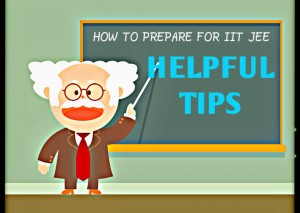
The Joint Entrance Exam (JEE) Mains is an entrance examination that student require to clear for admissions in to under graduate engineering courses. It has replaced the previously held AIEEE entrance examination for the various engineering courses since 2013. The JEE is a one way ticket to the 15 Indian Institutes of Technology (IITs), 30 National Institutes of Technology (NITs), four Indian Institutes of Information Technology (IIITs), five Indian Institutes of Science Education and Research (IISERs) and few deemed universities from 2013. The JEE will be held in two parts the first being the JEE Mains and the second being JEE – Advanced. On qualifying the JEE, students can gain admission into the popular NIT’S and IIIT’s for various engineering courses. No wonder engineering aspirants are excited and anxious at the same time. Here are a few pointers that will help you to boost your success quotient with a JEE study plan.
 Tip 1. Know your exam well: ensure that you have accurate information about the examinations such as the examination dates, syllabus covered, the different sections, the documents required and the duration given to each section.
Tip 1. Know your exam well: ensure that you have accurate information about the examinations such as the examination dates, syllabus covered, the different sections, the documents required and the duration given to each section.
Tip 2. Syllabus covered: JEE covers the CBSE syllabus or the syllabus of the previously held AIEEE. All the topics of JEE are covered in the NCERT books.
Tip 3. Know the sections: as the governing body that conducted the AIEEE is the same one that is conducting the JEE, the pattern is bound to be same hence the sections are objective type multiple choice questions are 25 combining the comprehension questions, comprehension type questions and assertions – reason type questions which are 5.
Tip 4. Important topics: the topics that you need to focus more on for JEE – Mains are subject specific i.e. for Physics one needs to have a fair understanding of Kinematics and Dynamics. It is essential for one to develop a strong problem solving ability therefore these two topics are important. In addition to this the Theory of Fields (Electromagnetism) is very important. For Chemistry, Physical Chemistry is a scoring topic hence all the units in it must be done perfectly. Apart from these topics neglecting Inorganic Chemistry isn’t wise because once you are clear about the concepts you score exceptionally well. As for Mathematics, Calculus is very important because it is used in all domains. Some other important and scoring topics are Determinants, Sequences, Permutation and Combination. Student must be able to relate complex numbers with Coordinate Geometry and Vectors. Even Three dimensional geometry is easy and scoring if the concepts are clear.
The topics that you need to focus for JEE- Advanced are as for Physics apart from Mechanics and Electrodynamics; you also need to allot an equal amount of time for Heat and Thermodynamics, Optics and Modern Physics. These topics are easy to score in once the concepts are clear. For Chemistry you need to focus on general principles of Organic Chemistry because the other tropics will be relatively easier to understand and for Physical Chemistry has a lot of numerical problems hence practice as much as you can. For Mathematics it is important to understand the inter-relationship between various topics as this knowledge is required for Geometry. The knowledge of Vectors is also very helpful in these topics. To solve problems of Probability having information about Permutation and Combinations will come in handy. You need to practice Trigonometry as well.
Tip 5. Practice: when it comes to mathematics the best way to develop confidence it nothing else but our old buddy practice, practice and then practice some more until and unless you are able to get the right answer. It is preferable to refer to previous years question papers and solve as many as you can. This will familiarize you to the examination and give you an idea as to the type of questions that are most likely to come.
Tip 6. Balance your time efficiently: you need to form a time table and allot a certain amount of time to the topics and subjects that you find difficult so that you can focus more on such topics. So when you have enough of time you need to use it for subjects that are tough.
Tip 7. Know which topics to learn when: Don’t learn a new topic just before the exam. Or spend time on subjects that are difficult. Instead revise what you have already done and perfect these topics.
Tip 8. While Studying: try and make use of memory improvement techniques, revise and rehearse topics that you have completed, take 5 minutes breaks after an hour.
Tip 9. Health Matters: it is important to ensure that you get enough rest, eat a balanced diet and most importantly exercise. It is important that you sleep in time, eat properly and exercise, if you wish to perform well in the examinations because both the body and the mind need to rest to function to its maximum potential.
For more information you can always visit jeemain.nic.in/jeemain2013/Welcome.aspx.
